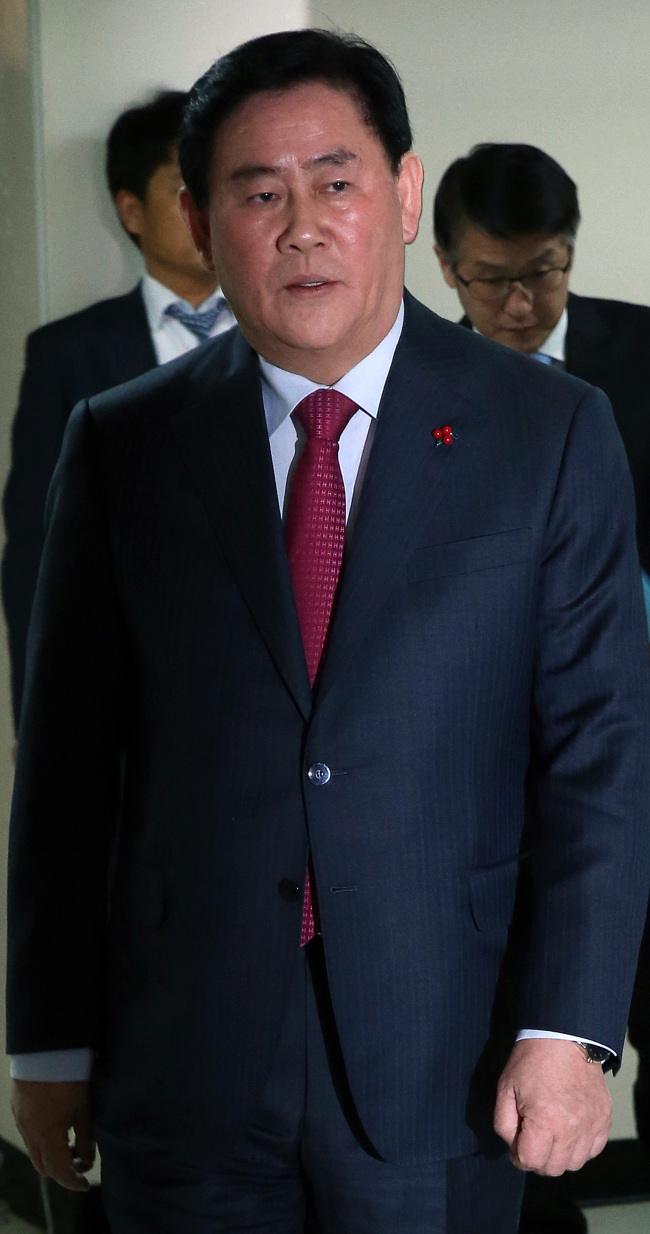South Korea’s Ministry of Strategy and Finance reiterated Tuesday that it would revise its income tax codes to better reflect individuals’ annual spending, savings and earnings amid public outcry against increased taxes on salaried workers.
In a hastily-arranged news conference in Seoul on Tuesday, Deputy Prime Minister and Finance Minister Choi Kyung-hwan said the government would consider readjusting the levels of tax credits and the categories subjected to deductions.
The revision, which will be carried out in March after people settle their 2014 taxes, will be made by taking into account the salaried workers’ family dependents and expected post-retirement financial situation.
“We will rationalize the taxes based on the result of the year-end tax filing after (evaluating) how much taxes have increased among various income groups and their fairness,” Choi said.
In a hastily-arranged news conference in Seoul on Tuesday, Deputy Prime Minister and Finance Minister Choi Kyung-hwan said the government would consider readjusting the levels of tax credits and the categories subjected to deductions.
The revision, which will be carried out in March after people settle their 2014 taxes, will be made by taking into account the salaried workers’ family dependents and expected post-retirement financial situation.
“We will rationalize the taxes based on the result of the year-end tax filing after (evaluating) how much taxes have increased among various income groups and their fairness,” Choi said.

He added that the ministry would consider allowing those whose tax burden has increased to pay their income taxes in installments.
The Finance Ministry has been facing growing criticism from the public and the political circles since last week, when people started to file their taxes for 2014, and many salaried employees found they would have to pay more taxes instead of receiving rebates.
The government’s reduction of tax exemptions including the revision of benefits from tax deductions to tax credits ― in line with its wealth redistribution policy by levying higher taxes on the rich ― has decreased the amount of tax refunds for those who make more than 55 million won ($51,000) a year.
A number of changes were made to the criteria for availing tax deduction benefits for education, medical and child care expenses. Previously, those with higher income were able to get more tax deductions for education spending even though they paid the same amount as low-income earners.
The ministry explained that this was to reduce rebates to counter the growing tax revenue shortfall and increasing financial burden of its public welfare programs amid the aging population.
The government had set out a plan to reduce about 900 billion won in tax refunds this year compared to last year. This will indirectly raise taxes, while increasing state revenues, which has drawn an angry backlash as the government broke its earlier pledge not to raise taxes.
The ruling Saenuri Party, albeit taking a cautious stance, said it would correct the problem in the current taxation system.
However, it noted that the reduction of tax refunds would only affect those in the mid- to high-income bracket, not the low-income group, adding that the mid-income group would only face a minor increase in taxes.
The main opposition New Politics Alliance for Democracy said it would propose to raise the current tax credit rate from 15 percent to 20 percent in an effort to create a taxation system that can better suit various income groups.
By Park Hyong-ki (hkp@heraldcorp.com)




![[KH Explains] No more 'Michael' at Kakao Games](http://res.heraldm.com/phpwas/restmb_idxmake.php?idx=644&simg=/content/image/2024/04/28/20240428050183_0.jpg&u=20240428180321)












![[Herald Interview] Mistakes turn into blessings in street performance, director says](http://res.heraldm.com/phpwas/restmb_idxmake.php?idx=652&simg=/content/image/2024/04/28/20240428050150_0.jpg&u=20240428174656)
